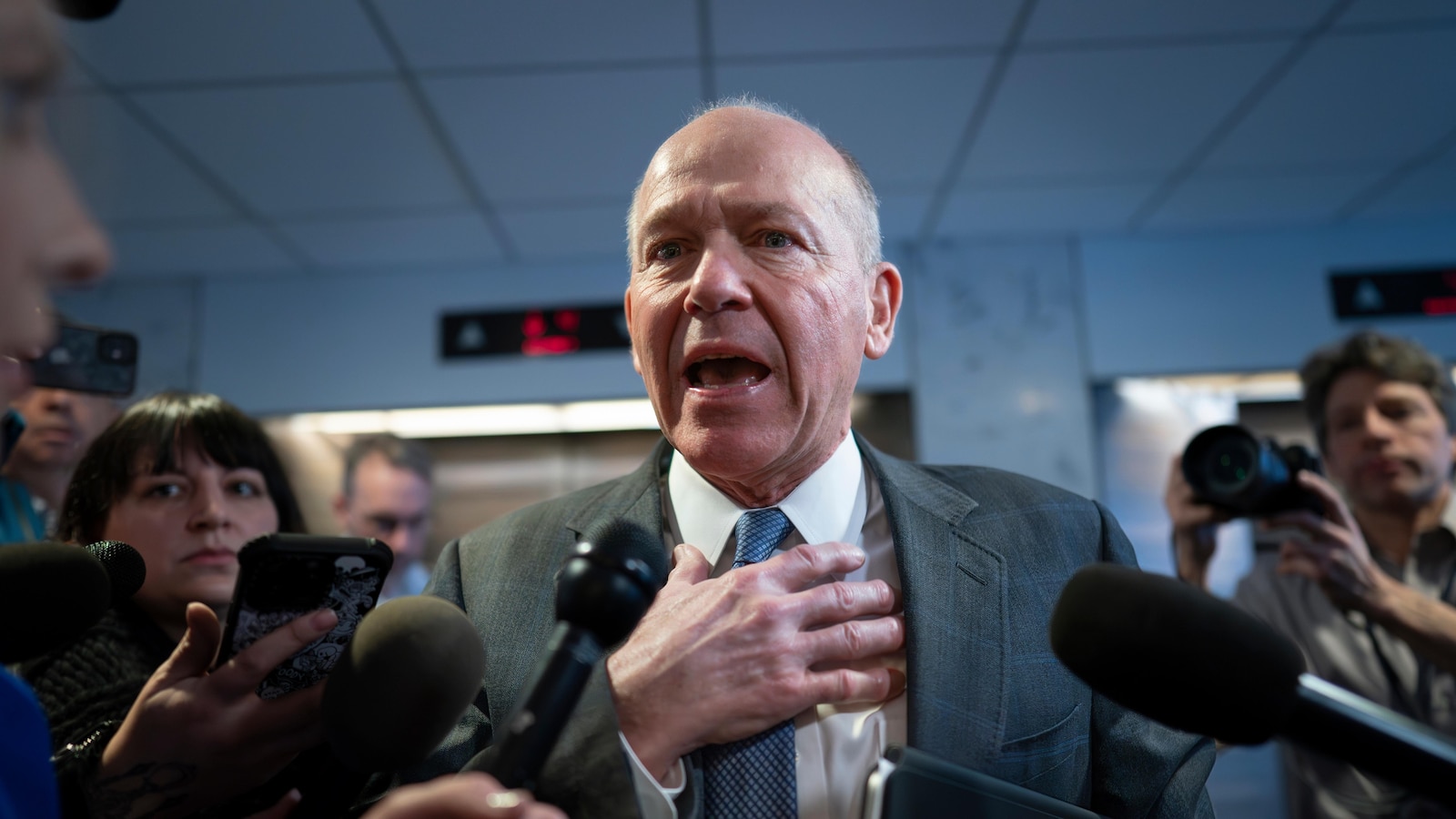
U.S. lawmakers are expected to press Boeing’s chief executive Tuesday about the company’s latest plan to fix its manufacturing problems, and relatives of people who died in two crashes of Boeing 737 Max jetliners plan to be in the room, watching him.
CEO David Calhoun is scheduled to appear before the Senate investigations subcommittee, which is chaired by Sen. Richard Blumenthal, D-Conn., a Boeing critic.
The hearing will mark the first appearance before Congress by Calhoun — or any other high-ranking Boeing official — since a panel blew out of a 737 Max during an Alaska Airlines flight in January. No one was seriously injured in the incident, but it raised fresh concerns about the company’s best-selling commercial aircraft.
The National Transportation Safety Board and the Federal Aviation Administration are conducting separate investigations.
“From the beginning, we took responsibility and cooperated transparently with the NTSB and the FAA,” Calhoun said in remarks prepared for the hearing. He defended the company’s safety culture.
“Our culture is far from perfect, but we are taking action and making progress,” Calhoun said in the prepared remarks. “We are taking comprehensive action today to strengthen safety and quality.”
Blumenthal has heard that before, when Boeing was reeling from deadly Max crashes in 2018 in Indonesia and 2019 in Ethiopia.
“Five years ago, Boeing made a promise to overhaul its safety practices and culture. That promise proved empty, and the American people deserve an explanation,” Blumenthal said when he announced the hearing. He called Calhoun’s testimony a necessary step for Boeing to regain public trust.
Calhoun’s appearance also was scheduled to take place as the Justice Department considers whether to prosecute Boeing for violating terms of a settlement following the fatal crashes.
The company says it has gotten the message. Boeing says it has slowed production, encouraged employees to report safety concerns, stopped assembly lines for a day to let workers talk about safety, and it appointed a retired Navy admiral to lead a quality review. Late last month, it delivered an improvement plan ordered by the FAA.
The drumbeat of bad news for Boeing goes on, however.
In the past week, the FAA said it was investigating how falsely documented titanium parts got into Boeing’s supply chain, and federal officials examined “substantial” damage to a Southwest Airlines 737 Max after an unusual mid-flight control issue.
Boeing disclosed that it hasn’t received a single order for a new Max — previously its best-selling plane — in two months.
Blumenthal first asked Calhoun to appear before the Senate subcommittee after a whistleblower, a Boeing quality engineer, claimed that manufacturing mistakes were raising safety risks on two of the biggest Boeing planes, the 787 Dreamliner and the 777. He said the company needed to explain why the public should be confident about Boeing’s work.
Boeing pushed back against the whistleblower’s claims, saying that extensive testing and inspections showed none of the problems that the engineer had predicted.
Calhoun announced in late March that he would retire at the end of the year. The head of the company’s commercial-airplanes unit resigned the day of Calhoun’s announcement.
Families of people who died in the Boeing Max crash in Ethiopia plan to attend Tuesday’s hearing on Capitol Hill. They have pressed the Justice Department repeatedly to prosecute Boeing.
“We will not rest until we see justice.,” said Zipporah Kuria, whose father died in the crash. She said the U.S. government should “hold Boeing and its corporate executives criminally responsible for the deaths of 346 people.”
The Justice Department determined last month that Boeing violated a 2021 settlement that shielded the company from prosecution for fraud for allegedly misleading regulators who approved the 737 Max. A top department official said Boeing failed to make changes to detect and prevent future violations of anti-fraud laws.
Prosecutors have until July 7 to decide what to do next.
Boeing CEO Dennis Muilenburg is set to address U.S. senators’ concerns on plane safety in the wake of two fatal crashes involving the company’s 737 Max aircraft. The Senate Commerce Committee has called for a hearing on aviation safety following the crashes of Lion Air Flight 610 in October 2018 and Ethiopian Airlines Flight 302 in March 2019, which together claimed the lives of 346 people.
The crashes have raised serious questions about the safety of Boeing’s 737 Max aircraft and the company’s handling of the situation. In both cases, the planes experienced similar issues with their automated flight control systems, known as the Maneuvering Characteristics Augmentation System (MCAS), which is designed to prevent stalls by automatically adjusting the plane’s pitch.
Boeing has come under fire for allegedly rushing the development of the 737 Max and failing to adequately inform pilots about the new system. Critics have also accused the Federal Aviation Administration (FAA) of lax oversight and allowing Boeing to self-certify the safety of its aircraft.
In response to the crashes, Boeing has been working on a software update for the MCAS system and conducting additional training for pilots. The company has also established a special board committee to review its policies and procedures related to aircraft safety.
Muilenburg is expected to face tough questions from senators about Boeing’s role in the crashes and what steps the company is taking to prevent similar incidents in the future. The hearing will provide an opportunity for lawmakers to hold Boeing accountable and ensure that the company is taking all necessary measures to prioritize safety.
The outcome of the hearing could have significant implications for Boeing, as well as the broader aviation industry. It will be crucial for Muilenburg to demonstrate that Boeing is committed to transparency, accountability, and most importantly, the safety of passengers and crew.
In the meantime, airlines around the world have grounded their 737 Max fleets until further notice, causing disruptions for travelers and financial losses for both Boeing and its customers. The company’s reputation has also taken a hit, with some questioning whether Boeing can regain the trust of regulators, airlines, and the flying public.
As Muilenburg prepares to address U.S. senators’ concerns on plane safety, all eyes will be on Boeing to see how it plans to navigate this crisis and restore confidence in its products. The stakes are high, but with a renewed focus on safety and transparency, Boeing has the opportunity to emerge from this challenging period stronger than ever.


